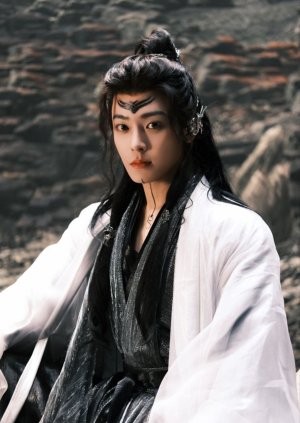This review may contain spoilers
A Tragedy Carved in Ember and Devotion
The Burning Flames isn't just a story; it’s an ache—slow, steady, and relentless. Like the smoldering fire it’s named after, it doesn’t explode in sudden fury, but simmers, consuming every breath of hope, love, and loyalty until all that remains is ash... and memory.
Set in an era where war isn't just fought on battlefields but within hearts, this drama paints a hauntingly beautiful picture of sacrifice. The characters are not mere figures on screen—they are living, bleeding souls who carry destinies heavier than swords. Every scene is laced with a quiet desperation: a general who dares to love in silence, a woman who chooses duty over desire, and a fate that never once shows mercy.
What makes The Burning Flames unforgettable is its restraint. It doesn’t beg for tears—it earns them. The dialogue cuts deep, the silences cut deeper. The cinematography dances with muted colors and flickers of firelight, mirroring the delicate hope that refuses to die, even as everything else does.
And then, when you think you’ve braced yourself for the inevitable, it shatters you—not with loud tragedy, but with the stillness of a final goodbye. You’ll find yourself staring at the end credits, hollow yet full—of grief, admiration, and awe.
This isn’t just a drama. It’s a slow-burning elegy to love, to loss, and to the kind of courage that asks for nothing in return.
Set in an era where war isn't just fought on battlefields but within hearts, this drama paints a hauntingly beautiful picture of sacrifice. The characters are not mere figures on screen—they are living, bleeding souls who carry destinies heavier than swords. Every scene is laced with a quiet desperation: a general who dares to love in silence, a woman who chooses duty over desire, and a fate that never once shows mercy.
What makes The Burning Flames unforgettable is its restraint. It doesn’t beg for tears—it earns them. The dialogue cuts deep, the silences cut deeper. The cinematography dances with muted colors and flickers of firelight, mirroring the delicate hope that refuses to die, even as everything else does.
And then, when you think you’ve braced yourself for the inevitable, it shatters you—not with loud tragedy, but with the stillness of a final goodbye. You’ll find yourself staring at the end credits, hollow yet full—of grief, admiration, and awe.
This isn’t just a drama. It’s a slow-burning elegy to love, to loss, and to the kind of courage that asks for nothing in return.
Was this review helpful to you?









